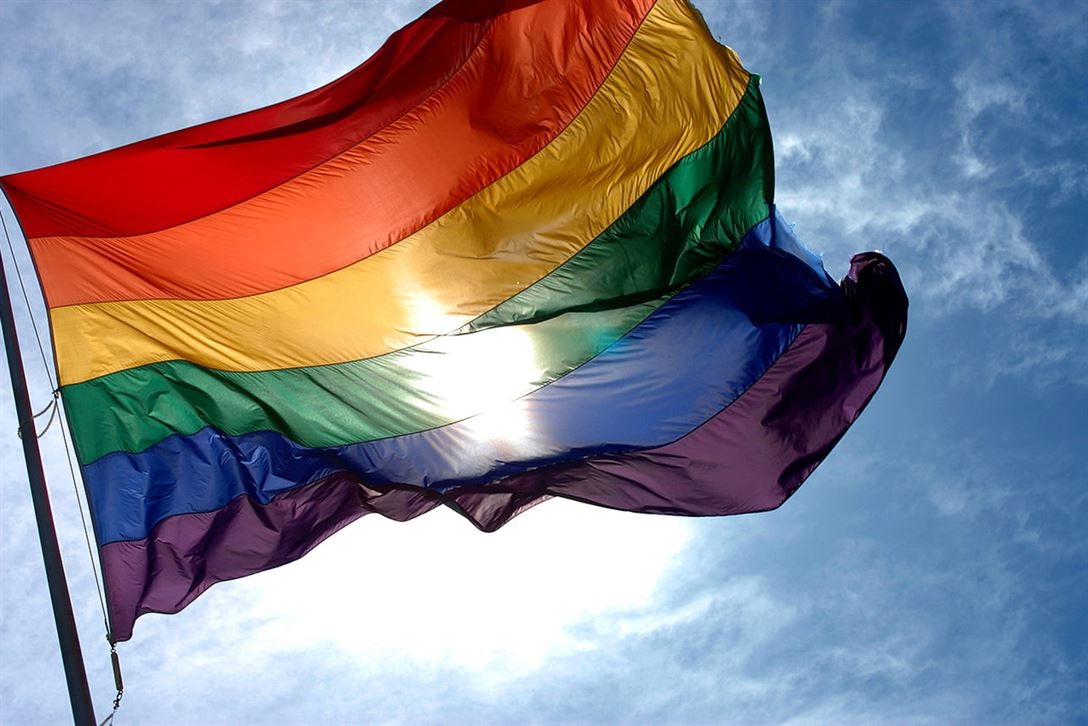
UPDATE?!
An update to a 2245-word long post? “Gimme me a break!” you say.
I will. I’ll make it just “long enough” to point the reader to a couple of articles discussing one aspect of the “transgender ban” that seems to be a factor in Trump’s latest attack on the military LGBT community: “Gender dysphoria.”
Perhaps Dr. Estés can explain this condition better in a comment or future post.
Original Post:
CODA 1:
Make yourself comfortable.
This is a lengthy story, but so is the recent struggle of the LGBT community to achieve equality.
My own personal experiences framing this narrative span a period of almost six decades.
~~~
For almost my entire military career, especially as a young, gung-ho military officer, I was a Republican. I had blindly supported the Vietnam War. I was captivated – if not captive – by the party of family values, of moral principles – a party full of patriots and God-fearing people.
Towards the end of my career, the horrors of the Vietnam War and the words of the Roman historian Tacitus, “They made a wasteland and called it peace,” became too poignant for even me to ignore and I found myself slowly yet steadfastly drifting away from my “roots” towards the Democratic Party.
Then, about four decades ago, there was no turning back.
Why?
Let me quote from my writings of a few years ago:
…the most personal and compelling reason was that so many from my previous party allege that my son is immoral, a biological error, or worse. A person who does not deserve all the rights and privileges other Americans enjoy. You see, my son–the finest young man in the world– happens to be gay.
Such intolerance, even hate, towards gays and lesbians continued to exist among members of my former party for many more years, belying the “God-fearing” claim and label, for I am sure that God does not hate homosexuals.
Don’t get me wrong, even my newly adopted party’s hands weren’t clean. Take president Clinton’s signing of the Defense of Marriage Act in 1996 banning federal recognition of same-sex marriage.
But six years later, to its credit, the Democratic Party became the first major US political party in history to publicly support same-sex marriage on a national platform at the Democratic National Convention.
Generally, a lot of progress toward equality for LGBT people has been made during the past two decades, albeit not everywhere and not for everyone.
The struggle by gays and lesbians to serve their country openly in the military is a salient example.
I still remember during my service how the discovery that a young man was gay would invariably become the death knell of his career.
In 1975, a young Air Force Non-Commissioned Officer purposely revealed his sexual orientation to protest the military’s ban on gays. Six months later, Technical Sergeant Leonard P. Matlovich, a decorated Vietnam War veteran was forcibly discharged.
Matlovich became a cause célèbre to the young gay movement, was featured on the cover of TIME magazine and was honored by LGBT History Month as a leader in the history of the LGBT community.
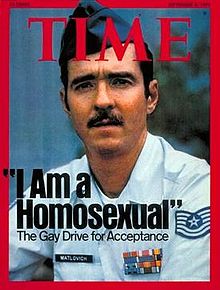
Four years later, the Court of Appeals ruled that the dismissal was improper and Matlovich was awarded his back pay and a retroactive promotion.
For several more years, gays and lesbians continued to struggle for the right to openly and honorably serve their country.
In 1993, President Bill Clinton, in a compromise from hell, issued an at best dubious, at worst horrible military policy known as “Don’t Ask, Don’t Tell” (DADT) – banning openly gay and lesbian Americans from serving in the military, but also prohibiting the harassment of “closeted” homosexuals.
What followed was an 18-year period of uncertainty, confusion, incongruity, inefficacy — even chaos –- in and for our military as gay and lesbian members of the military suffered the ludicrous effects of an ill-advised, ill-implemented and ill-enforced policy.
It came at an unconscionable cost in in morale, in trained, qualified personnel and in treasure. (More than 13,000 service members were forced out under DADT).
For 18 years, our nation continued to flail and flounder through the morass of DADT with all its hypocrisy, arbitrariness, untenability and its selective enforcement.
Never mind the overwhelming body of evidence that allowing gays and lesbians to serve openly does not pose a significant risk to morale, good order, discipline, or cohesion (No “orgies on demand,” no “wild sex on demand”)
Never mind that the armed forces of so many of our allies such as the United Kingdom, Australia, Canada, the Netherlands and one of the finest fighting forces in the world, the Israeli Defense Forces, including its elite Special Forces units, have had gays and lesbians serving openly and professionally for many years.
Never mind that hundreds – if not thousands—of active duty and retired military leaders, generals and admirals, called for the end of DADT.
Never mind that there are more than one million gay and lesbian veterans in the United States as well as, at the time of DADT, 65,000 gays and lesbians serving honorably – many heroically — in our armed forces, including in the Iraq and Afghanistan theaters of war.
Commenting on the U.S. Senate’s vote in 2010 to start the process to repeal DADT, I mentioned some gay service members who have received every military award and decoration from the Purple Heart to the Air Medal for Heroism, including:
Lt. Col. Victor Fehrenbach, an 18-year Air Force veteran who flew a total of 88 combat missions over Kosovo, Afghanistan and Iraq as an F-15 fighter pilot and who received eight Air Medals, one for heroism. Fehrenbach happens to be gay.
Marine Sgt. Eric Alva, who stepped on a landmine the first day of Operation Iraqi Freedom and lost his right leg, broke his left leg and permanently damaged his right arm. As the Iraq war’s first casualty, he received the Purple Heart along with personal visits from President and Mrs. Bush and Secretary Rumsfeld. Alva also happens to be gay.
There are many other heroes, as well as victims.
On September 20, 2011, President Barack Obama “finally and formally repealed the discriminatory law known as ‘Don’t Ask, Don’t Tell.’”
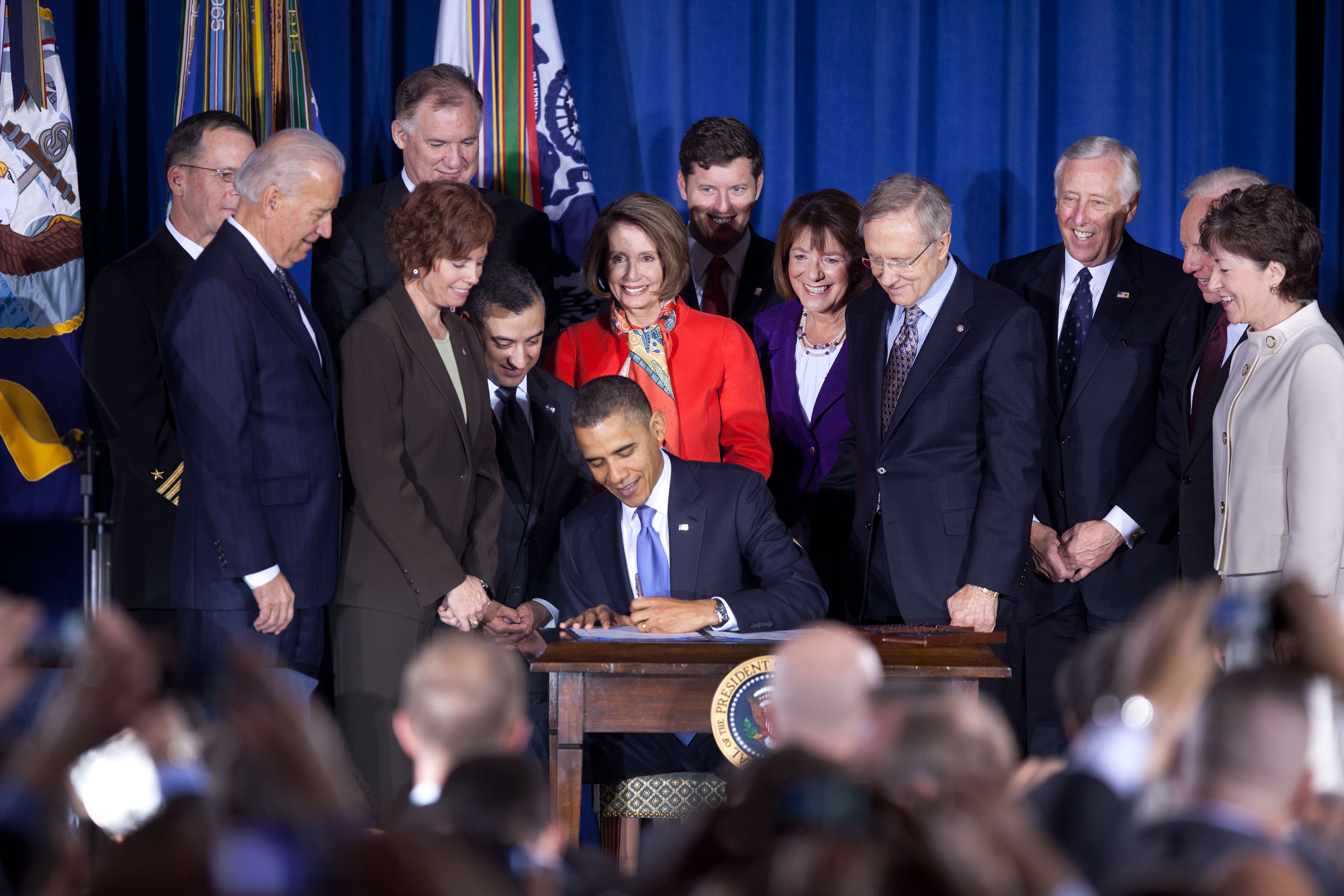
President Barrack Obama signs the DADT repeal act in Washington, D.C., Dec. 22, 2010, officially overturning the Don’t Ask, Don’t Tell law. White House photo by Chuck Kennedy
This is part of what President Obama said on the occasion:
Today, the discriminatory law known as ‘Don’t Ask, Don’t Tell’ is finally and formally repealed. As of today, patriotic Americans in uniform will no longer have to lie about who they are in order to serve the country they love. As of today, our armed forces will no longer lose the extraordinary skills and combat experience of so many gay and lesbian service members.
::
Today’s achievement is a tribute to all the patriots who fought and marched for change… to the professionalism of our men and women in uniform who showed that they were ready to move forward together, as one team, to meet the missions we ask of them
And move forward they did.
And the sky did not fall.
As a matter of fact, one year after the repeal of DADT, the New York Times commented, “politicians and others who warned of disastrous consequences if gay people were allowed to serve openly in the military are looking pretty foolish.”
The Times based its judgement on a detailed 43-page study report prepared by the prestigious Palm Center, a branch of the Williams Institute at the U.C.L.A. School of Law.
The Palm Center:
Our conclusion, based on all the evidence available to us, is that DADT repeal has had no overall negative impact on military readiness or its component dimensions, including cohesion, recruitment, retention, assaults, harassment or morale…If anything, DADT repeal appears to have enhanced the military’s ability to pursue its mission.
Additional legislation and Department of Defense policies continued to both strengthen our military and improve conditions and rights for lesbian, gay, bisexual and transgender (LGBT) members of the military.
In June, 2015, Secretary of Defense Ash Carter announced that the Military Equal Opportunity policy had been adjusted to include gay and lesbian military members.
In May 2016, the Senate confirmed Eric Fanning to be secretary of the Army making him the first openly gay secretary of a US military branch.
At a June 2016, LGBT panel discussion, top Defense Department officials discussed how “diversity in the military makes the force stronger.”
Speakers at the forum included the deputy assistant secretary of defense for operational energy, Amanda R. Simpson, the highest-ranking openly transgender official in the government at the time and Air Force Maj. Gen. Patricia Rose (below), the military’s highest-ranking openly gay officer.
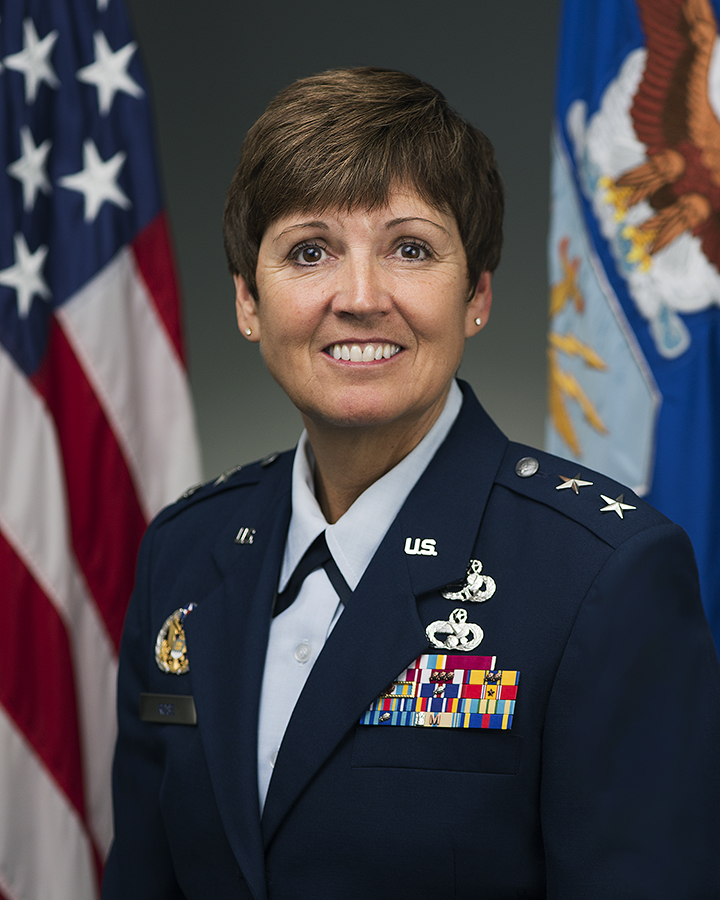
June 2016 was also Lesbian, Gay, Bisexual, and Transgender Pride Month, proclaimed by President Barack Obama in 2009, to highlight the contributions made by LGBT Americans and to call upon the people of the United States to “turn back discrimination and prejudice everywhere it exists.”
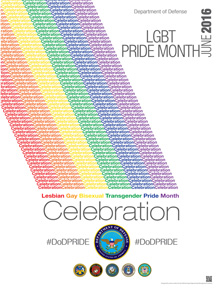
Finally, at the end of the same month, then-Secretary of Defense Carter announced that the Pentagon was lifting the ban on transgender people serving openly in the US military. The policy permitted those already in uniform to begin serving openly and ordered the military branches to begin preparing to accept new transgender recruits by July 1, 2017.
As mentioned, the military and the nation moved forward.
That is, until a July morning last year, when the man who during his presidential campaign courted the LGBT community and promised to “fight” for them, rolled out of bed and tweeted “an unequivocal ban on transgender people serving in the military,” citing – among other – the “tremendous medical costs …that transgenders in the military would entail.”
The Washington Post called this, “[a] decision [that] halts a years-long process of advancing rights for lesbian, gay, bisexual and transgender people in the U.S. military that began with the repeal of the ‘don’t ask, don’t tell’ policy in 2010.”
In another article, commenting on the cost of services to military transgender personnel, the Washington Post observes:
By contrast, total military spending on erectile dysfunction medicines amounts to $84 million annually, according to an analysis by the Military Times — 10 times the cost of annual transition-related medical care for active duty transgender servicemembers.
The military spends $41.6 million annually on Viagra alone, according to the Military Times analysis — roughly five times the estimated spending on transition-related medical care for transgender troops.
The man making such profound policy announcements via twitter – policies that could affect thousands of transgender troops currently serving in the military* — is probably one of the least morally, militarily and medically qualified persons to do so.
Senator John McCain, a man who has a “little more” military experience and a lot more character than the sitting president, said at the time:
The President’s tweet this morning regarding transgender Americans in the military is yet another example of why major policy announcements should not be made via Twitter…
::
There is no reason to force service members who are able to fight, train, and deploy to leave the military—regardless of their gender identity. We should all be guided by the principle that any American who wants to serve our country and is able to meet the standards should have the opportunity to do so—and should be treated as the patriots they are.
Someone else, reacted to Trump’s twitter outburst.
Former Navy SEAL, Kristin Beck, a transgender war veteran from the Iraq and Afghanistan wars and Purple Heart recipient expressed disappointment in Trump, saying, “his ban showed ‘hate’ and ‘bigotry’ toward those serving in the armed forces,” according to Politico. “They’re a soldier, they’re serving their country. Treat them with dignity and respect just like you would want to be treated yourself,” she said. “It’s not very difficult.”
Trump’s tweet was also criticized by several top military officials and is being challenged in the courts.
Nevertheless, this past Friday night, under cover of darkness, Trump followed through on his earlier threats and issued orders to ban transgender troops who require surgery or significant medical treatment from serving in the military except in select cases.
LGBT advocates “swiftly slammed the decision, calling it ‘appalling, reckless and unpatriotic.’” Other groups and individuals such as the American Military Partner Association, OutServe-SLDN, GLBTQ Legal Advocates & Defenders, the Democratic National Committee, Rep. Jimmy Panetta (D. Ca.) and former Secretary of Defense Leon Panetta are joining the chorus of protest and indignation on an issue that may end up before the U.S. Supreme Court because the ruling bans “a group of people from the military on the basis of their gender identity..”
Panetta put it all in perspective:
“We went through that with ‘Don’t Ask, Don’t Tell. We worked through it with issues of race. We worked through it with women. We have always found a way. And in the end people have been able to serve their country and that is what counts.”
And once again, the war hero whom Trump ridiculed for having been captured during the Vietnam War criticized Trump for making major policy announcements via Twitter. Senator John McCain added, “Any American who meets current medical and readiness standards should be allowed to continue serving. There is no reason to force service members who are able to fight, train and deploy to leave the military — regardless of their gender identity.”
CODA 2:
Yes, President Trump has nominated a gay Republican for the ambassadorship to Germany.
Richard Grenell is yet to be confirmed by the Senate.
Hillary Rosen, a Democratic strategist, commented, “I don’t think having Richard [Grenell] at the table helps the [LGBT] movement one bit…[Last week] President Trump approved his plan to discriminate against trans troops fighting [for] their country and Grenell, still waiting for his seat at the homophobic table, stayed silent.”
*A 2016 study conducted by the government-funded RAND Corporation for the Pentagon estimated that nearly 4,000 transgender troops were serving on active duty and in the reserves. Military LGBT advocacy groups put the estimate much higher, at around 15,000.
















